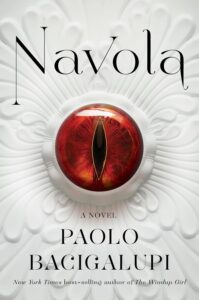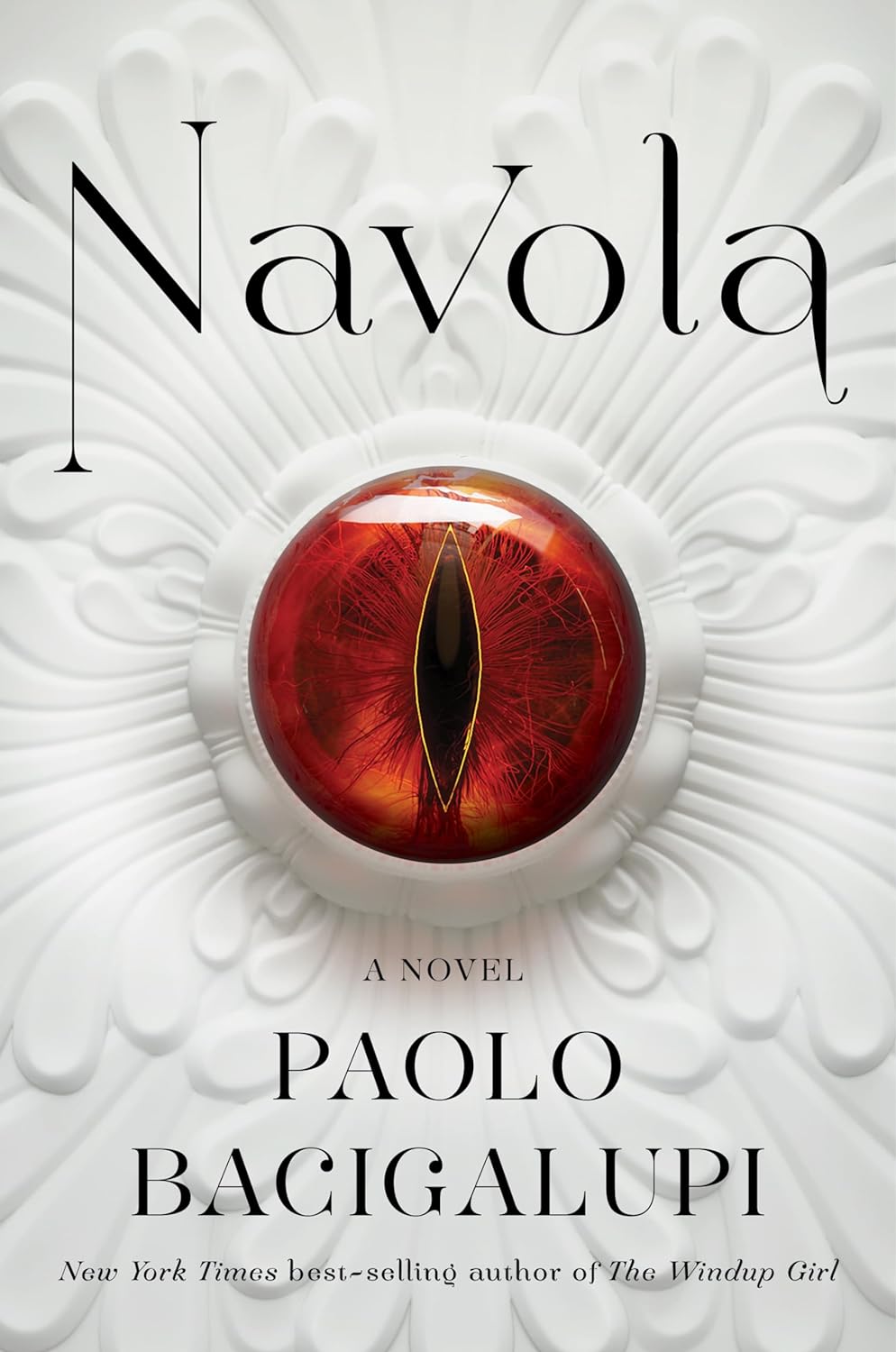Bacigalupi’s newest fantasy transports readers to Renaissance Italy
Navola explores coming of age “in the dragon’s eye”
Navola explores coming of age “in the dragon’s eye”
In 2009, Colorado author Paolo Bacigalupi’s debut novel, The Windup Girl, hit bookstore shelves with a resounding clap of thunder that still echoes in the air.
In The Windup Girl the author took readers deep inside a frightening version of the future. Readers felt the dank wet heat and humidity of future Thailand, inhaled the mingled scents of commerce coupled with too many people and gigantic, sweating beasts of burden. They could feel the hairy skin of the ngaw fruit, and almost taste the gush of sweetness as the slippery orb-shaped fruit crushed between their teeth.
The talent of Paolo Bacigalupi is to place readers exactly where he wants them. Reared in the Paonia area, he still lives in Colorado. In addition to the multi-award winning The Windup Girl, he has published three Young Adult novels, a middle-grades book and an ecological thriller.
In Navola, his new historical fantasy novel, he lures readers into a subtly altered version of Renaissance Italy, perhaps Florence or Venice of the 1400s. Readers will feel the sun-warmed marble of a courtyard bench beneath them as they sip sweet tea and nibble on bitter cheese, watching the inner machinations of a wealthy merchant banking family unspool before them. One of the author’s gifts lies with inserting Italian, or quasi-Italian, phrases into prose and dialogue in such a way that the reader knows what he means and is left with a feeling of being clever enough to follow along. In lesser hands, the reader would be left only with the sour taste of frustration.
Marketing for Navola heralds it as The Godfather meets Game of Thrones. That’s a great tagline for grabbing the attention of readers, but fails to capture the beautiful rhythms and nuance of the book. Fans of classic fantastical fiction should be aware that this book is a long, slow build, meant to be savored. There are no great and terrible wars of magic, no hags or crones or wizards. The one fantastical element that shapes the story opens the book: “My father kept a dragon eye upon his desk.”

Paolo Bacigalupi
The huge, clouded orb (“larger than a man’s skull”) sits on protagonist Davico’s father’s desk, trailing a tail of sharp, crystallized optic nerves. For much of the story, that eye is one thread of a vividly woven tapestry, albeit a shiny one whose existence in the tale winks slyly at the reader.
Davico di Regulai is heir apparent to the most powerful merchant banking family in the fictional city-state of Navola, Italy. Following in the footsteps of his father, his grandfather, and his great-grandfather, Davico is expected to excel at the banking trade. This includes everything from weather patterns to foreign currencies to religious practices to the personal peccadillos of a client who wants to borrow money or curry favor. Davico’s father has expanded the family’s influence into all corners of their world, and he expects Davico to continue on the course laid before him.
But Davico is far more interested in a life focused on Firmos, the web that exists connecting all of nature, rather than Cambios, all that is influenced by the touch of man. His ideal pursuit would be that of physician, as he has an uncanny ability to relate to the natural world and creatures around him. While his family’s wealth and position are exactly what give Davico the time and ability to indulge his interests, he sees the world of commerce more as a restraining halter that prevents him, at every turn, from pursuing his heart’s desire. It’s an easy leap for a reader to see how similar attitudes play out for people of means in modern society.
There are hard lessons ahead for Davico, and physician Cazzetta is prophetic when he says, “If wisdom were easy, we would all be wise.” Davico appears an honest narrator, as long as the reader understands this is merely one point of view of the dramas that unfold across Navola and the larger world during his coming of age and entering manhood.
What of the dragon’s eye? It may represent Davico’s affinity for all things Firmos that allow him to connect with the spirit of the dragon. The ways of a dragon are completely alien to Davico, and he learns about the insignificance of humankind over the centuries while also learning darker lessons about hunger and power.
Navola is beautifully written, immersive in what’s essentially Renaissance Italy. But if you’re looking for high-action fantasy (quests, wizards, witches, etc.), this is not the book. It’s meant to be savored, not gulped.
MB Partlow (she/her) is a Colorado transplant who has written for the CS Indy, the Gazette, and Pikes Peak Parent, most prolifically in the area of food reviews. She is co-host of the Mysteries, Monsters, & Mayhem podcast, which allows her to indulge her curiosity and her sense of humor, while sharing both with the world. She reads across genres, and generally needs another cup of tea.
Click here for more from MB Partlow.

